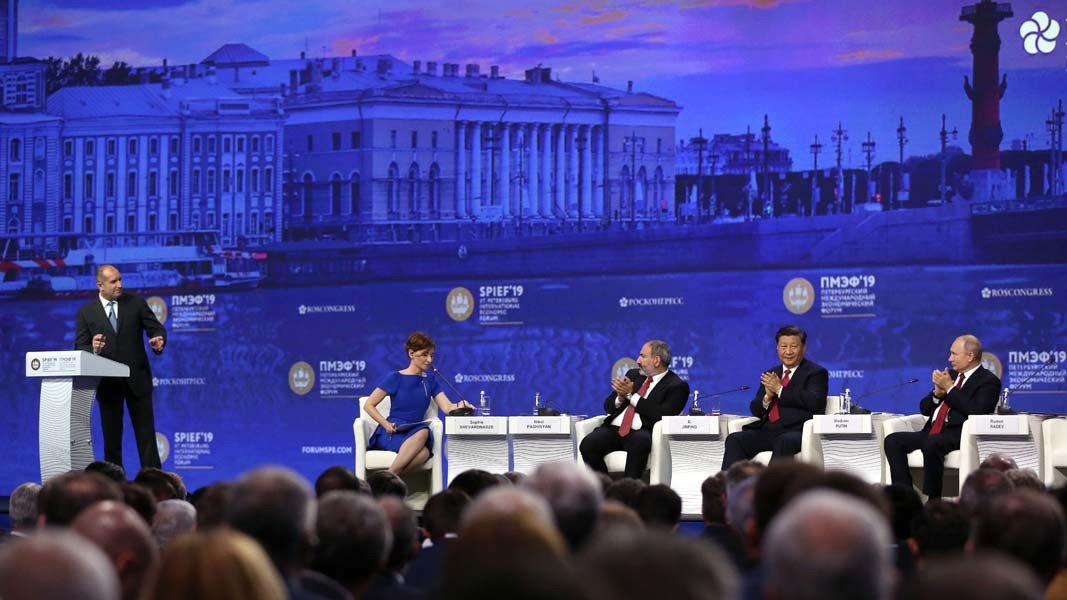At their meeting last week, in the framework of the St. Petersburg International Economic Forum, the presidents of Russia and Bulgaria discussed development of bilateral relations. Vladimir Putin pointed out that they were "gradually recovering" and Rumen Radev said that the centuries-old historical, cultural and spiritual ties between the two countries should imply much more active cooperation in economy, energy and culture. A little more than a year ago, in his talks with Rumen Radev in Moscow, the Russian head of state had wished for "a resumption of full-blown Russian-Bulgarian relations." Recent assessments by the presidents show that there has been progress in relationships but serious, obstacles to their development remain, including political ones.

A testimony to this is the argument between the two during discussions at the St. Petersburg forum, which some media described as a "clash". Putin said that Bulgaria had lost from stopping the South Stream gas pipeline project for transit of Russian gas through its territory. According to him, this was not a sovereign decision and the price for Bulgaria was lost investments in South Stream. President Radev replied that he could not agree with the statement that Bulgaria's sovereignty was limited because "South Stream" was not only a Bulgarian but also a European project and the decision was a joint one. The EU's newest energy policies, to which Bulgaria adheres, aim at diversification and competitiveness of energy supplies and, according to Radev, created an opportunity for Russia to expand its presence on gas markets in Southeastern and Central Europe. This fact, according to the Bulgarian head of state, calls for an answer to the question of how Bulgarian-Russian strategic cooperation could be continued under the new conditions.
During the President's visit to Russia, there was a clear difference seen in views on strategic issues in energy partnership. President Radev called for a much more flexible approach and mechanisms regarding contracts for long-term supply of energy resources, their updating and price reduction. Thus, the president hinted he was expecting a change in Russia's pricing policy for gas supplies to Bulgaria, but Putin said the price of gas was tied to the price of oil and was "fair".
Speaking about prices at the level of heads of states is not something usual as such discussions are more appropriate for government and experts’ level meetings. Some political observers commented that at an economic forum like the one in St. Petersburg it would have been better for President Radev to be accompanied by the ministers of energy, tourism and economy, as these are the largest spheres of business relations between the two countries. Vladimir Putin's meeting with Rumen Radev in St. Petersburg has shown that at the highest political level there is will for building constructive dialogue towards restoring traditional good relations, although their "full-blown" recovery wished for a year ago by the Russian head of state is not yet a reality.
English: Alexander Markov
Photos: BGNESDelian Peevski, leader of the DPS–New Beginning party, met with Dzhevdet Chakarov, chairman of the Democracy, Rights and Freedoms parliamentary group DPS–DPS (aligned with Ahmed Dogan) . During an in-depth discussion, the two agreed that “the page of..
Will the Green Deal survive, or is it already losing momentum? Is there a risk that Europe will be left alone in its fight for green policies? The Green Deal will survive, though it may be rebranded, believes Virginijus Sinkevičius, former EU..
Turkey hosts direct talks between Russia and Ukraine Negotiations for a ceasefire between Russia and Ukraine are starting in Turkey. Turkish Foreign Minister Hakan Fidan met late last night with the Russian delegation..

+359 2 9336 661
